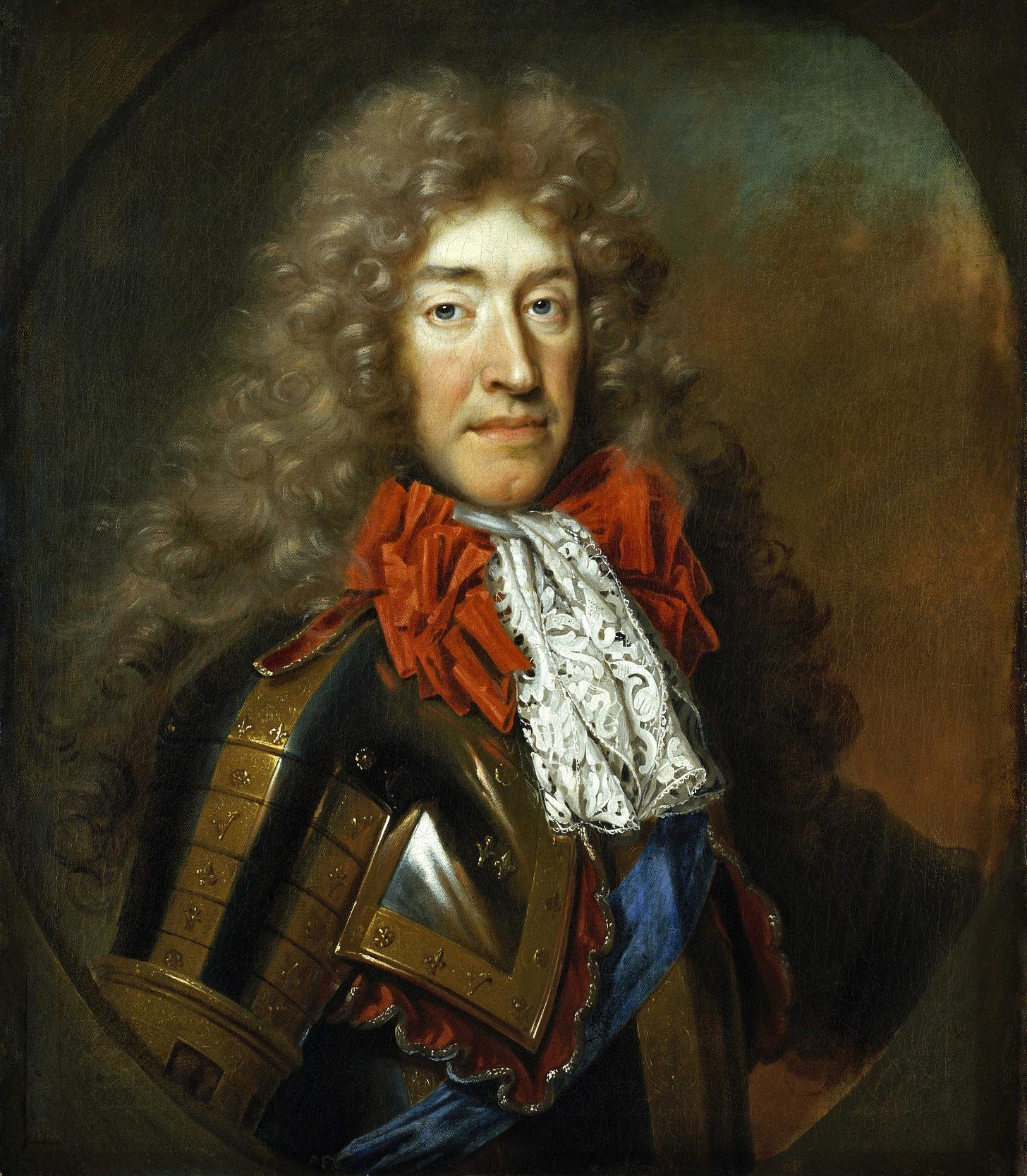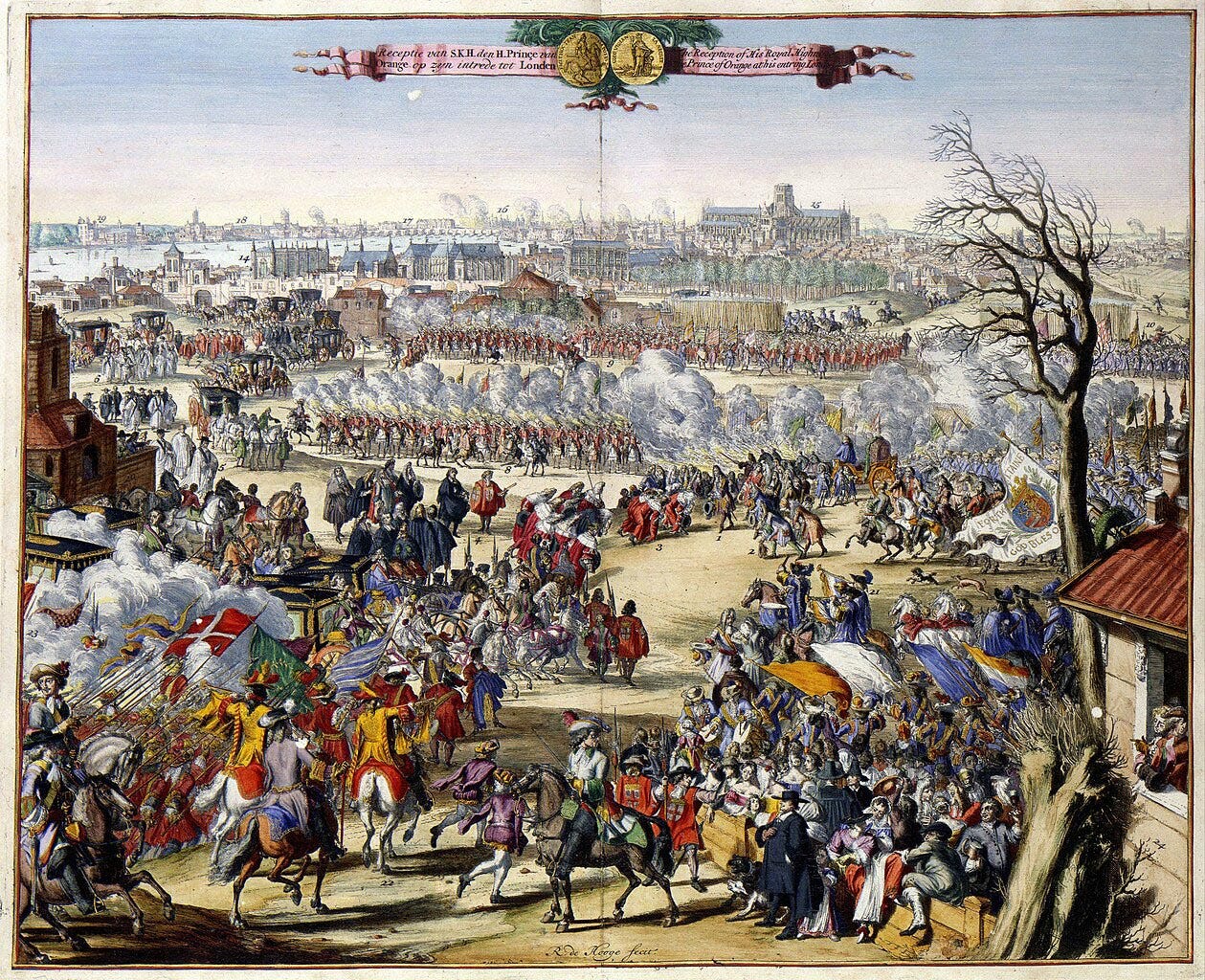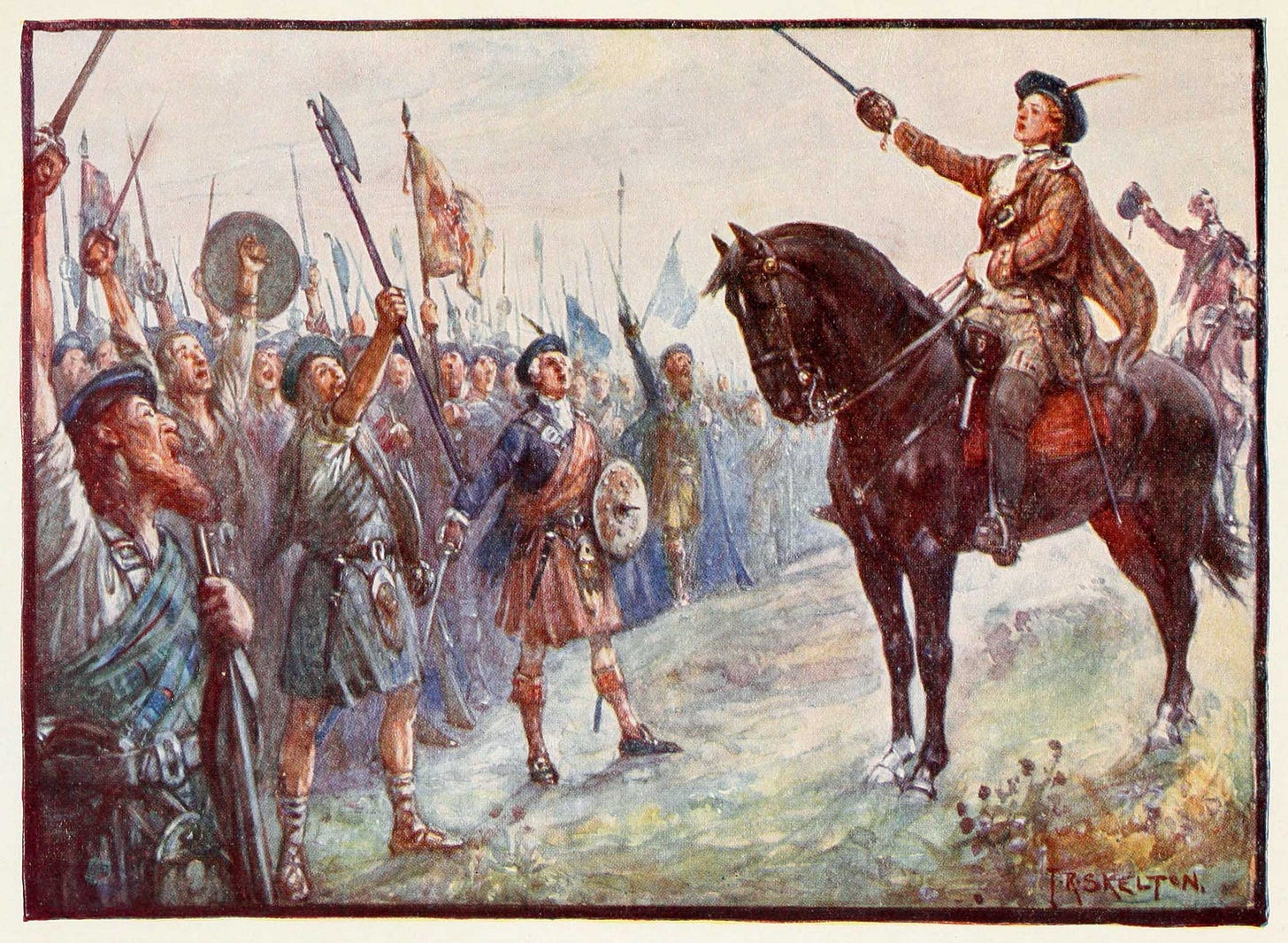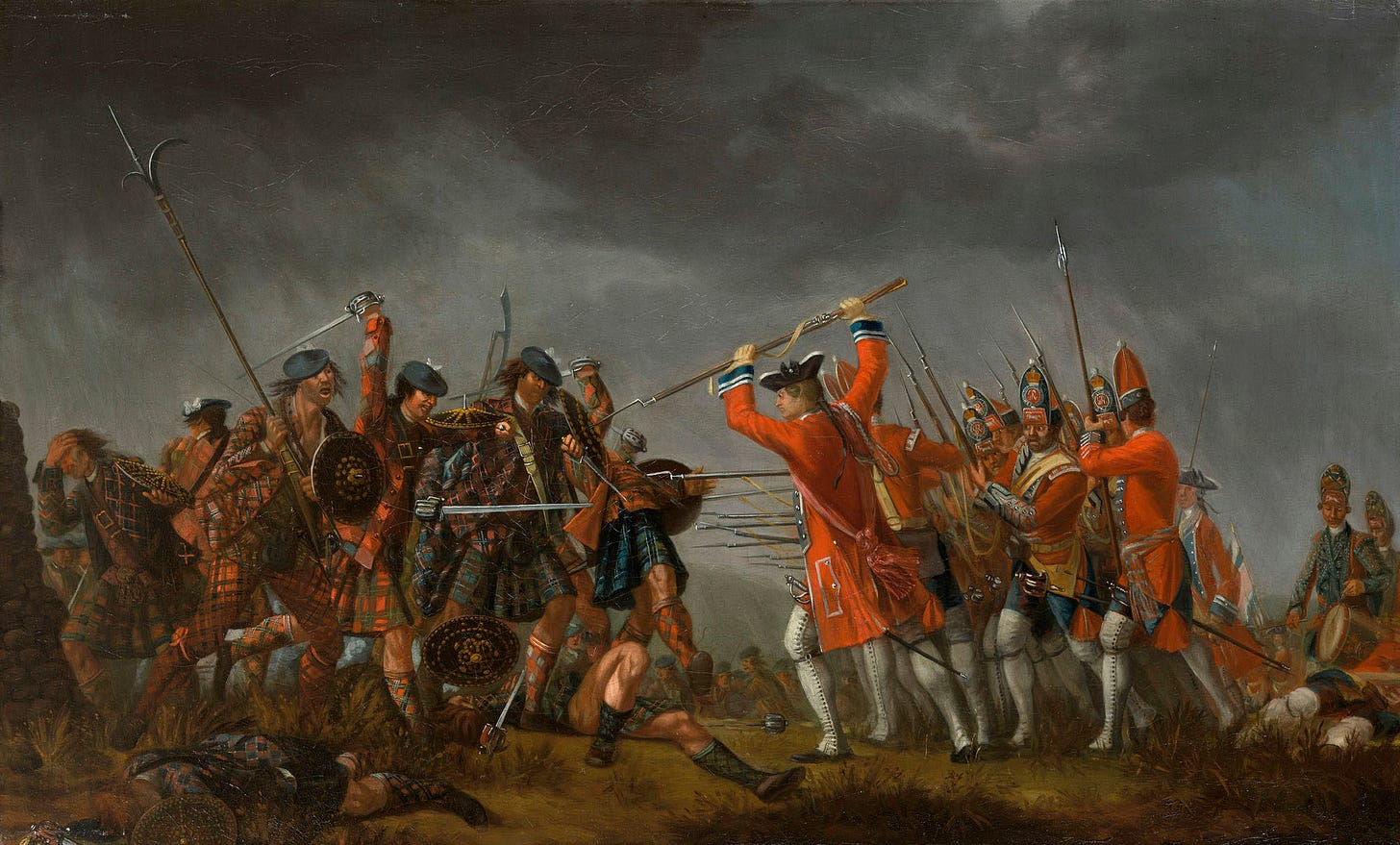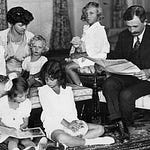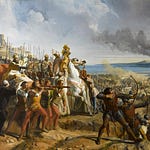It is said that ‘everyone loves a winner’. Yet heroism exists in failure too, and in the allure of the ‘last stand’.
It is for this that Jacobitism, the will to restore the House of Stuart to the thrones of Britain following the ‘Revolution’ which had in 1688 deposed them, and thus restore monarchic government in place of parliamentary rule, has become the closest thing to modern mythology in the British Isles. “What could have been?”, the proud Briton might lament, dreaming as he does of a Britain less global and more local.
The cause alone was powerful enough, yet its memory was immortalised more than anything else by its most daring and charismatic champion. He was baptised as Charles Edward Louis John Casimir Sylvester Severino Maria Stuart. History and folklore, however, know him as Bonnie Prince Charlie.
In 1745, the Prince made his dramatic move to reclaim his father’s thrones, and oust the usurpers who had stolen the destiny of Britain. His astounding successes, short-lived though they were, would shake London to her very roots.
Today, we consider what Bonnie Prince Charlie truly fought for, just how close he came to changing the course of world history, and what it can teach you about taking the greatest of gambles…
EDITOR’S NOTE: Our paid subscribers now get exclusive, long-form videos to accompany each Tuesday email.
In each video, James shares primary texts, paintings, maps, and more to take you on an audio-visual tour through history and bring each character we study to life. Free previews are available to all readers, with full access reserved for paid subscribers.
To gain immediate access to this video plus our entire back-catalog of over 130 articles, videos, and podcasts, click below to upgrade your membership:
What was Jacobitism?
Timestamp: 00:01:12
In its most superficial definition, Jacobitism sought to restore King James II, and thenceforth his descendants, to the thrones of England, Scotland and Ireland — following his ousting in 1688. ‘Jacobite’, after all, is derived from Iacobvs, the King’s Latin name.
Yet Jacobitism, rather like Legitimism in France, was about far more than restoring one particular king. It was a battle for the very soul of Britain. What she stood for, what she was and what she aspired to be. Was she to be the anti-Catholic and staunchly Protestant merchant state, where policy followed the demands of finance, and where the entirety of governance was to be centralised in the Parliament of London?
Or was she to embrace Jacobitism, the fraternity of Christendom, where Protestants and Catholics co-existed with equal right, as did Englishmen, Scotsmen and Irishmen in their own kingdoms, governed separately and united simply in the person of their monarch, in an order which valued local community over supranational uniformity?
In a remarkable letter to his son, King James II indeed set out his vision for what Britain could and should be…
The Usurpation of Britain
Timestamp: 00:07:26
The year 1688 is a curious date in British history. It is indeed one of the most, if not the most important years in British history, one whose events have since been whitewashed by calling it the ‘Glorious Revolution’.
Put simply, by conspiring with a foreign power to invite foreign invasion in order to overthrow a sitting monarch whose policies they disliked, Parliament established a sweeping precedent that fundamentally changed the notion of what sovereignty meant in Britain, birthing the order which remains in power to this day.
The Stuart kings are often associated with royal absolutism, and accused of trying to force Catholicism on Britain — a narrative seldom challenged and reinforced every day in school curricula. Yet what supposed act of tyranny triggered Parliament’s act of unambiguous high treason? Quite simply, the King’s commitment to religious freedom and the most ancient of English liberties:
“It having pleased Almighty God not only to bring us to the imperial crown of these kingdoms through the greatest difficulties, but to preserve us by a more than ordinary providence upon the throne of our royal ancestors, there is nothing now that we so earnestly desire as to establish our government on such a foundation as may make our subjects happy, and unite them to us by inclination as well as duty; which we think can be done by no means so effectually as by granting to them the free exercise of their religion for the time to come, and add that to the perfect enjoyment of their property, which has never been in any case invaded by us since our coming to the crown; which being the two things men value most, shall ever be preserved in these kingdoms, during our reign over them, as the truest methods of their peace and our glory”
Declaration of Indulgence of King James II, 4th April 1687
Parliament, after all, did not want either a religious or political rival to its own power base, or backers, and was prepared to stop at nothing to prevent the formation of one…
Fortune Favours the Bold
Timestamp: 00:50:27
With the British Isles convulsed by waves of Jacobite uprisings in the years which followed 1688, resistance to the new order intensified in Scotland, whose national autonomy and local clan society were both obsolete in the eyes of a Parliament committed to absolute centralisation.
The merging of the English and Scottish parliaments in 1707, and the severe crackdown on conservative Tories by the liberal Whig regime that was entrenched by the Hanoverian succession in 1714, added further fuel to the fire. Increasingly, there was no ‘parliamentary’ opposition. Any opposition at all was increasingly identified with the exiled Stuarts, and hopes of their restoration.
When war erupted in Europe in 1740, and British armies were tied down on the continent, Jacobitism stirred. Yet this time, the catalyst for rebellion would not be a local lord, but Prince Charles Edward Stuart, the exiled grandson of James II himself. At just 24 years of age, the dashing and bonnie (‘handsome’) prince seized destiny with both hands, and launched an extraordinarily daring enterprise. On the 23rd July 1745, he landed in Scotland with just seven companions, and one ambitious mission — to overthrow the British government, and restore his father as the rightful King of England, Scotland and Ireland.
What followed would ache the souls of many Britons, and stir the hearts of Scotsmen, for centuries to come…
Victory Turned to Defeat
Timestamp: 01:27:59
In the last days of 1745, poised on the brink of a victory that would have challenged forever the notion that history is a path of ‘unstoppable progress’, the Jacobite cause crumbles.
Oblivious to the scale of its achievement, and the misfortune of their foes, the Scottish chiefs suffer a crisis of confidence. To the exasperation of the Prince who had brought them here, the Jacobite Rising goes down in the annals of history as arguably the most spectacular opportunity ever to be thrown away.
Thus does the noble cause become the lost cause, perishing to merciless musket and cannon on Culloden moor. Yet so daring are the events of 1745, and so inspirational are they to the most sentimental corners of the human soul, that the legend of the Jacobite Rising and its most heroic leader long outlived its century.
The world whose infancy the Jacobites fought against is the world whose maturity has brought crises of legitimacy across the entire Western world today. For that alone their struggle is worthy of study, quite beyond remembrance, and a powerful reminder that sometimes, fortune really does favour the bold….
A preview of this video is free for all readers of INVICTUS. To gain access to the full video (plus our entire backlog of over 130 articles, videos, and podcasts) click below to upgrade your membership:


